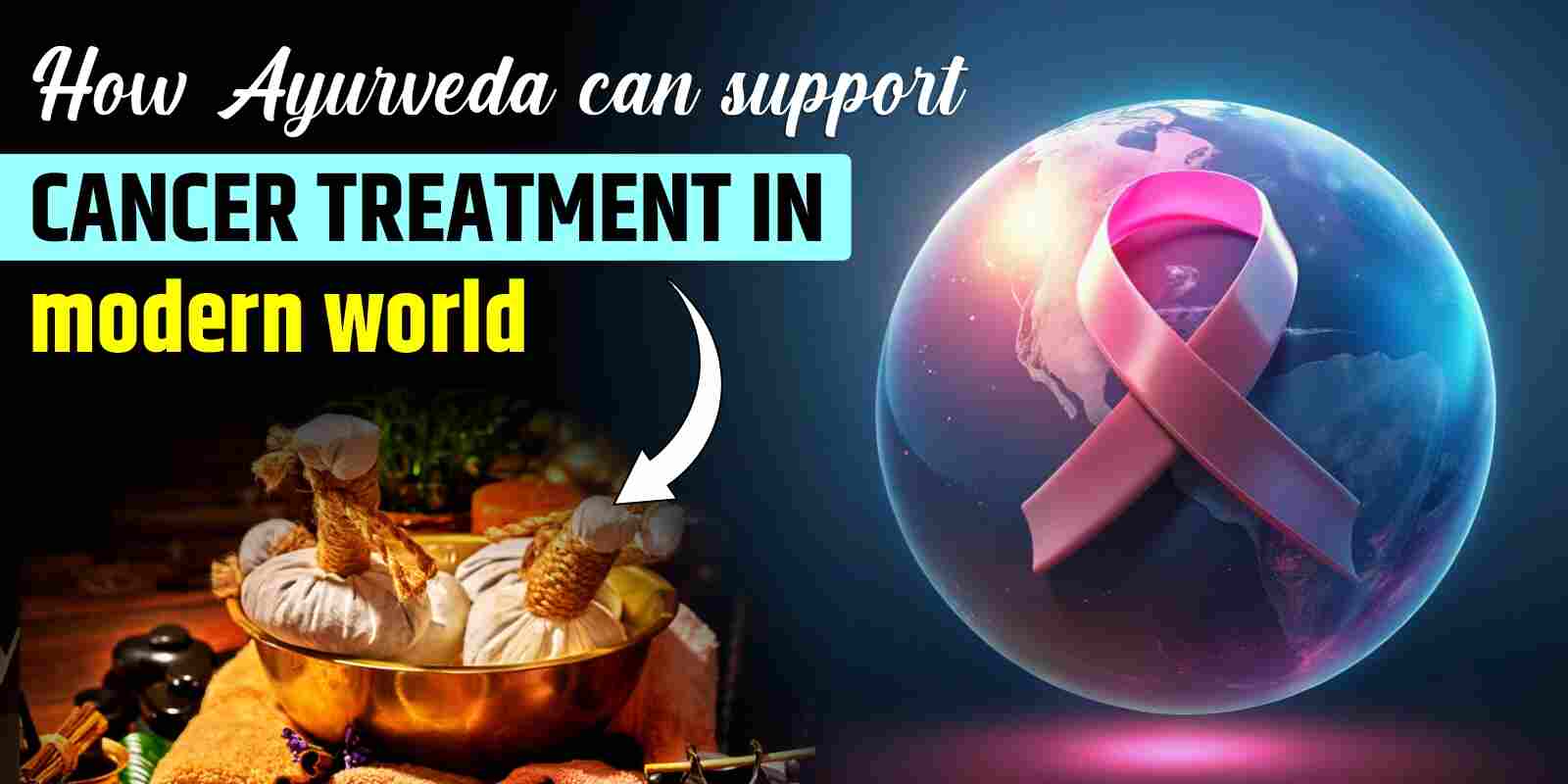
If you or someone close to you is dealing with cancer, you are likely experiencing a frenzy of feelings; hope, fear, perhaps even a touch of bewilderment over what will happen next. I’ve been there with family members on difficult health journeys, and I understand how much you want to do everything you can to feel better and fight harder. That’s where Ayurvedic cancer treatment comes into play. This ancient Indian system isn’t meant to displace modern cancer treatments like chemo or surgery, those are essential, but should be a gentle, powerful teammate that can help smooth the rough patches and increase your overall wellness. Knowing how at home you are with both Ayurveda and scientific thinking, let’s explore how Ayurveda can find its place in cancer care in the world soul of today.
Think of Ayurveda as a 5,000-year-old wellness guidebook that is all about balance. It stems from the belief that your body, mind, and spirit are connected, and when they’re not lined up, things like cancer can sneak in. Ayurveda describes three energies, or “doshas”, Vata, Pitta, and Kapha, that influence the way your body operates. Cancer, in Ayurveda, is often the result of a dosha gone out of balance, plus the collection of toxins (known as “ama”) stemming from stress or environmental debris or a bad diet. The goal? Flush out those toxins, rebalance your system, and allow your body a fighting chance to heal along with modern interventions.
Let’s be very clear: Cancer treatment in Ayurveda is still at an infantile stage. If anyone tells you it is, sharpen your eyebrow and walk on. Modern medicine, with radiation, chemo, or immunotherapy, is the heavy hitter for shrinking tumors or halting spread. But those treatments can leave you feeling as if you have been hit by a truck: nausea, fatigue, brain fog, the works. Ayurveda is here to absorb those shocks, provide uplifting intentionality, and perhaps even toughen your body. It’s like a coach being in your corner cheering you on while you take on the big fight.
So, what does Ayurveda have in its playbook? It’s a combination of herbs, diet, lifestyle tweaks, and mind-body practices, customized for you. Here’s how it can help:
Ayurveda is big on eating according to your body type (or dosha). For cancer support, it’s all about fresh, whole foods like veggie soups, quinoa, even fruits like berries. Walk right past the heavy, processed food (sorry, fries!) which puts a strain on your liver and kidneys. Warm, cooked meals are simpler for your body to digest as they save energy for healing. A hint of ginger or cumin can kick-start digestion, too.
Ayurveda also enjoys a good cleanse, but not of the starving variety. And practices like oil pulling (swishing sesame oil in your mouth) or sipping warm water with lemon, both of which sweep toxins away without sapping energy. For bigger detoxes, such as Panchakarma (think herbal enemas or massages), you would need a pro’s guidance.
You may be thinking, “That sounds lovely, but does it really work?” Fair question! But science is still catching up with Ayurveda’s long history; there’s promising buzz. Studies have shown, such as one from India’s AYUSH ministry, that turmeric can reduce the incidents of chemo-related mouth sores in oral cancer patients. In another trial, a four-month Ayurvedic program, herbs, yoga, diet, etc. improved sleep and mood in breast cancer survivors. Rasayana herbs (such as ashwagandha) may even help attenuate the toxicity of chemotherapy and enhance immunity, although we need larger studies to verify.
On the other hand, specialists such as the oncologist Dr. Sandeep Nayak warn that herbs can actually interfere with chemo drugs, for example, they may amplify side effects or put a strain on your liver. That’s why it’s so necessary to involve your doctor before you do anything else. No rogue moves here!
Excited to try it? Terrific, but take it slow and safe. So first things first: Talk to your oncologist — seriously, do not skip this step. Then, seek out a legit Ayurvedic practitioner (double bonus if they have experience with cancer patients). They’ll balance your doshas, review your medical history, and create a plan just for you. That may be something like a tulsi tea habit or some yoga to kick off. Small tweaks can feel huge.
A caveat: herbs like turmeric are lovely in food, but high-dose supplements can be risky, as you may experience symptoms like stomach upset, blood-thinning issues (too much fish oil, for instance). Stick with what your doc and practitioner give the green light to.
In our frenetic world, cancer treatment can be cold and clinical. Literally and figuratively, Ayurveda brings warmth. It doesn’t just mean combating the disease; it means tending to all of you. As cancer rates rise (approximately 1.9 million new cases in the U.S. last year alone), more individuals are seeking this holistic approach to help ease the physical and emotional weight. If you are serious about herbal treatment for cancer, then you can go for Karma Ayurveda for cancer treatment, as the hospital offers quality Ayurvedic treatment for cancer. You must, however, remember that catching the symptoms early is the key.

Certificate no- AH-2023-0186
JAN 05,2023-JAN 04,2026
"Ayurveda is not just a system of medicine; it's a way of life. Connect with us to embrace a lifestyle that nurtures your body, mind, and soul."
Book Consultation Now